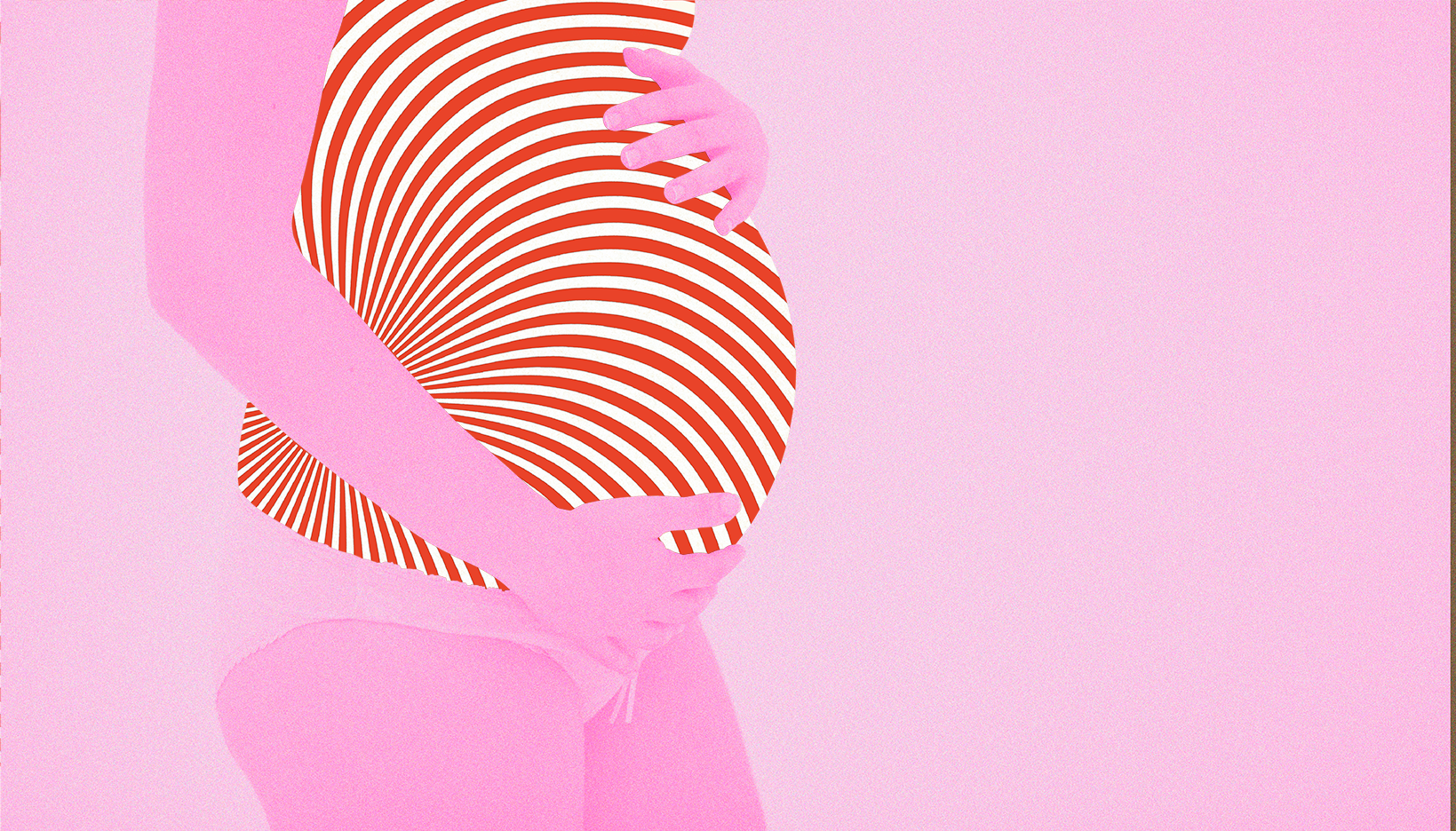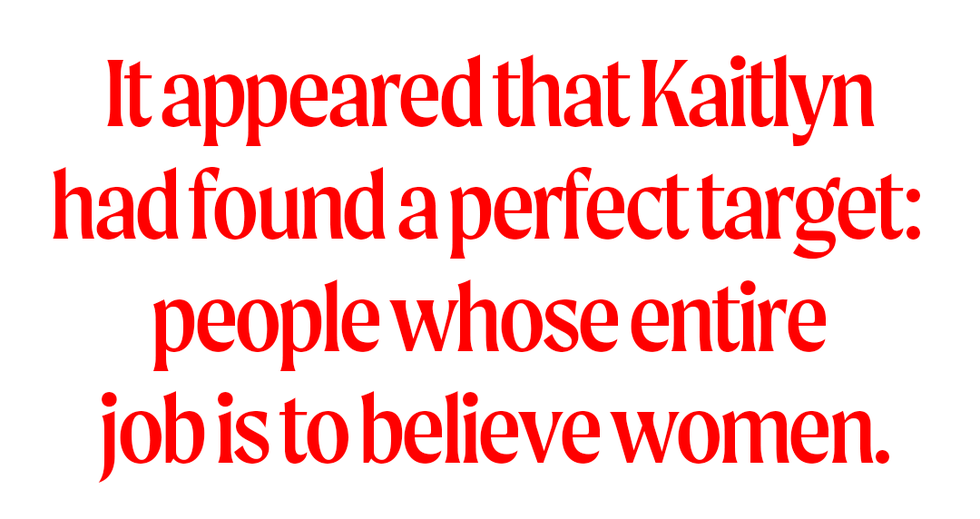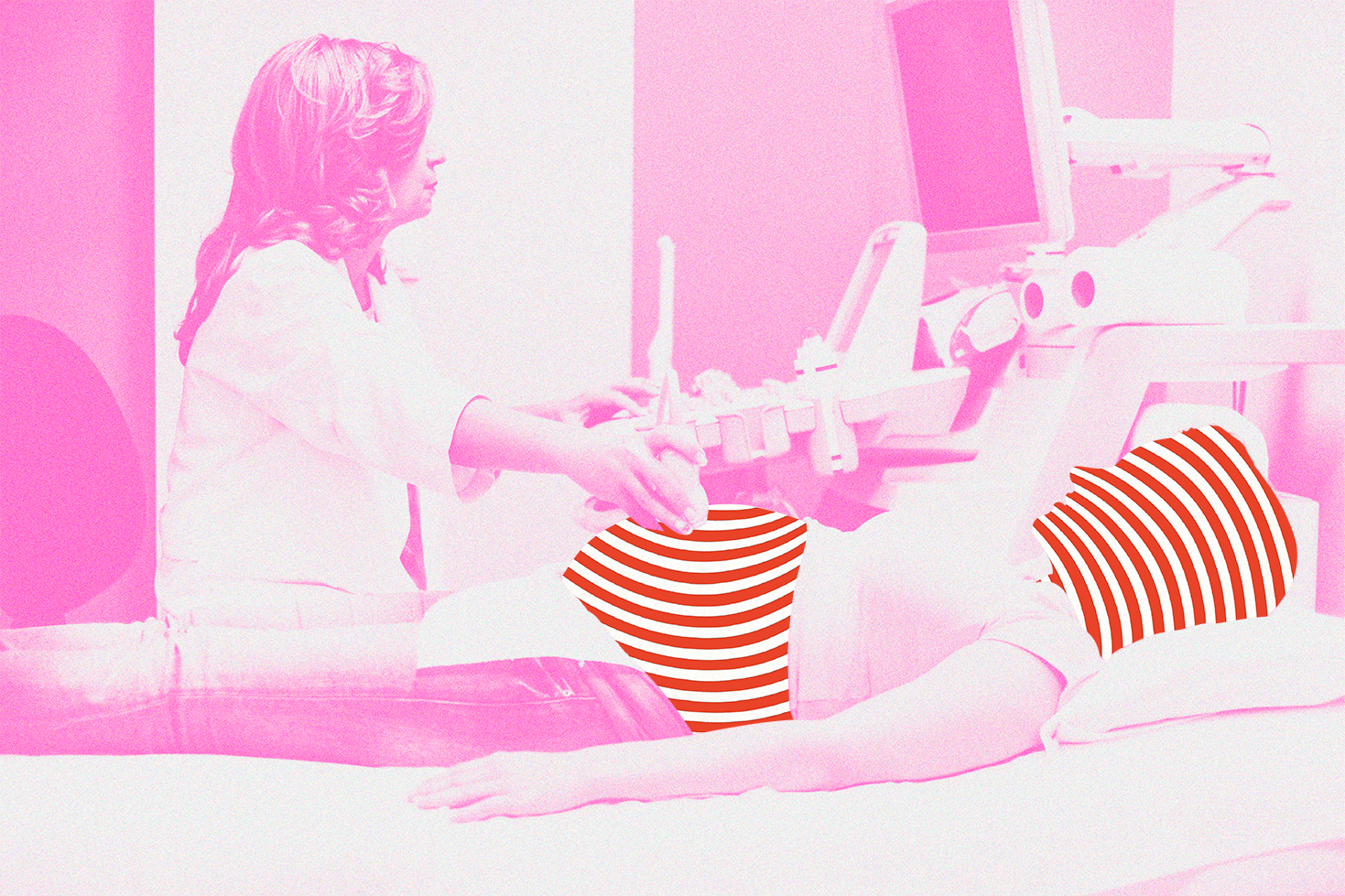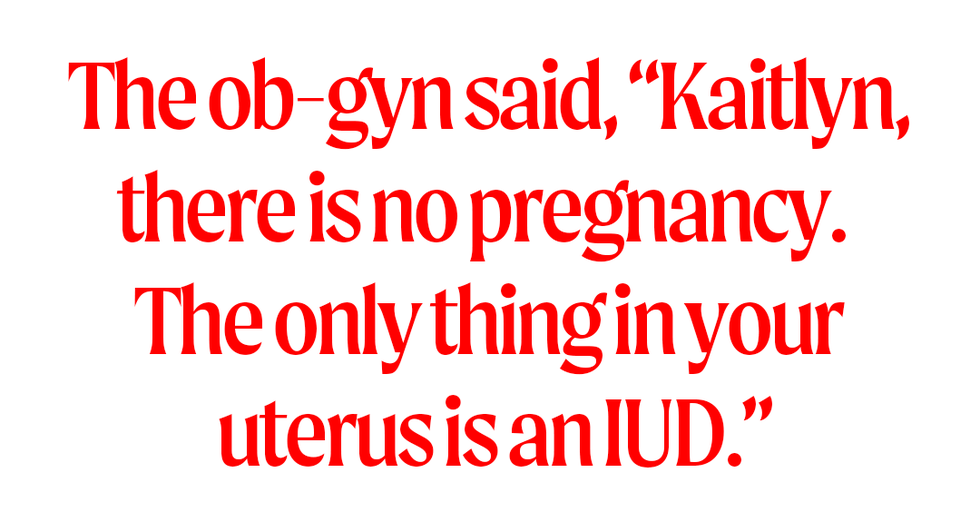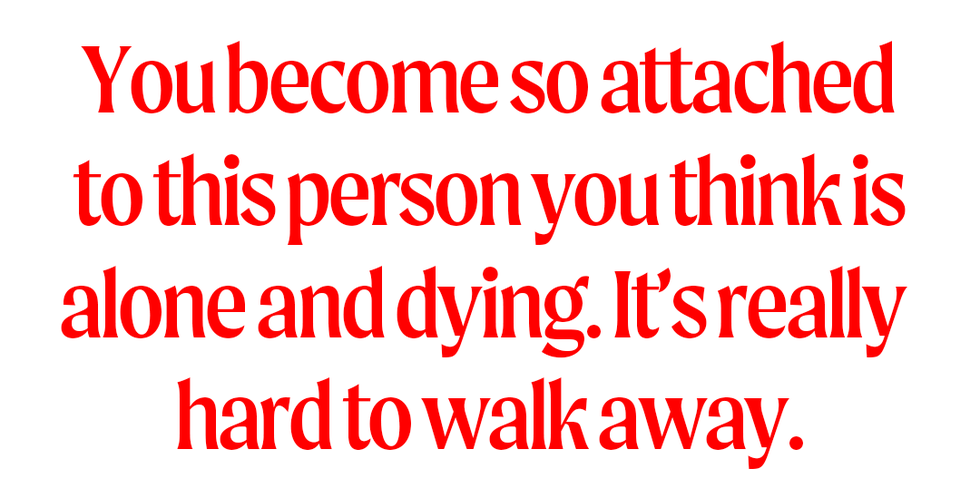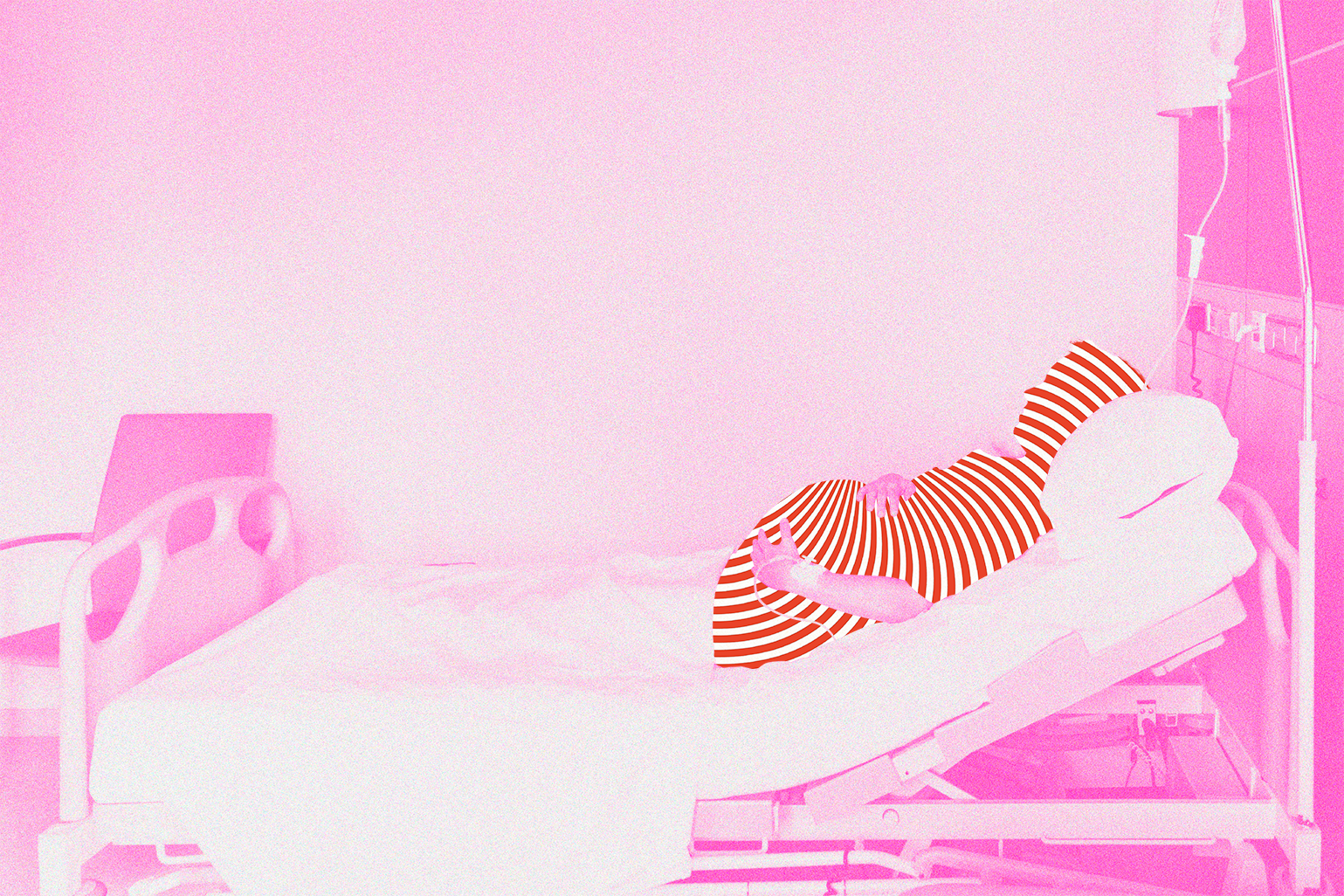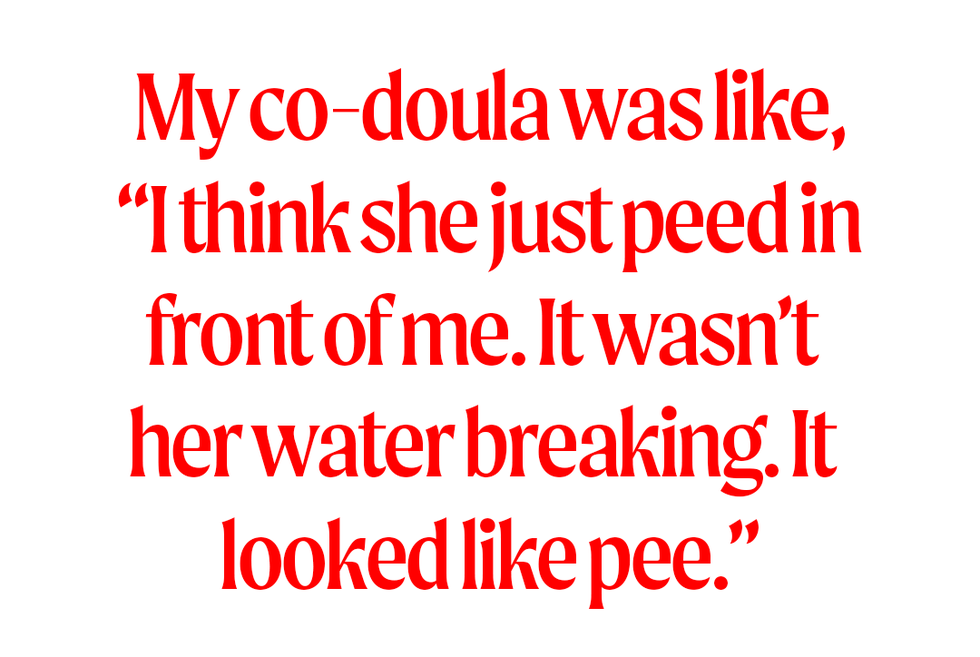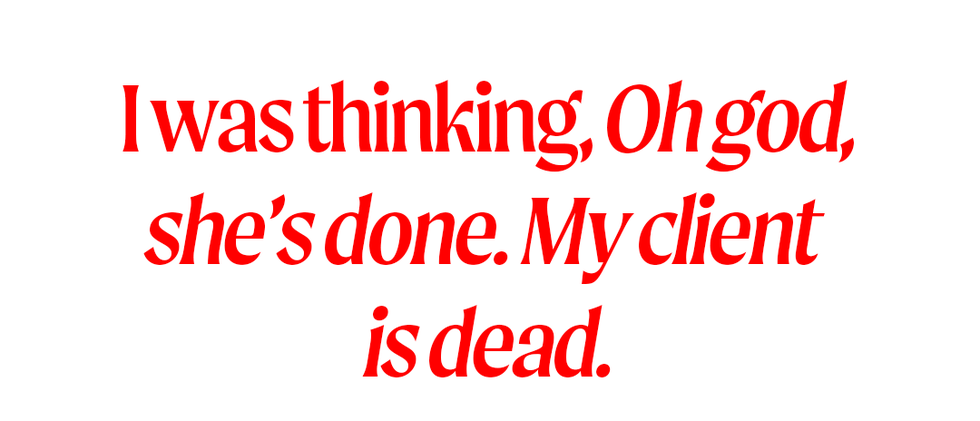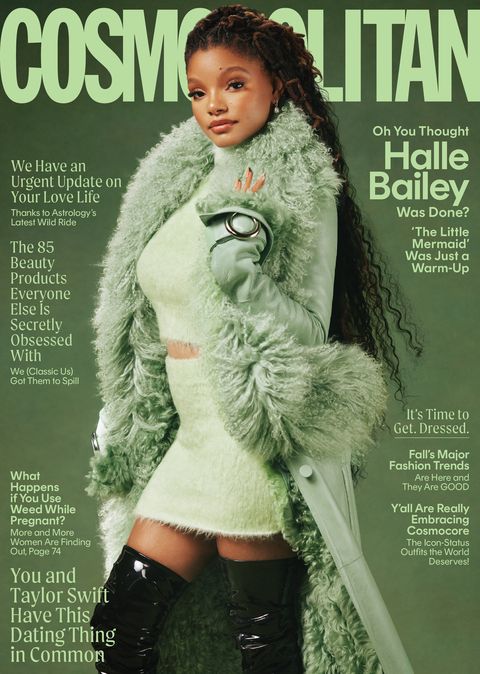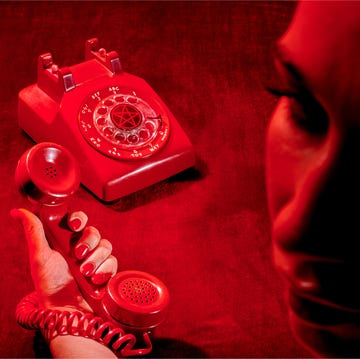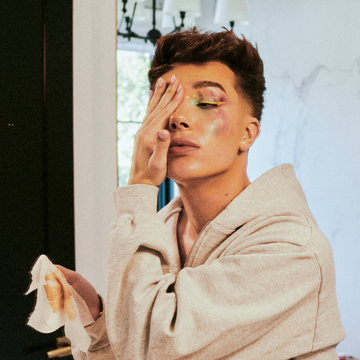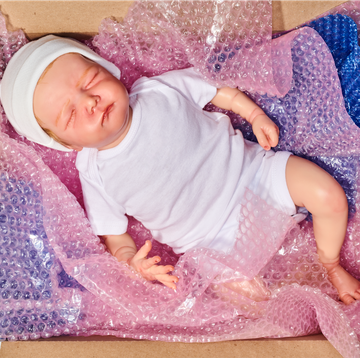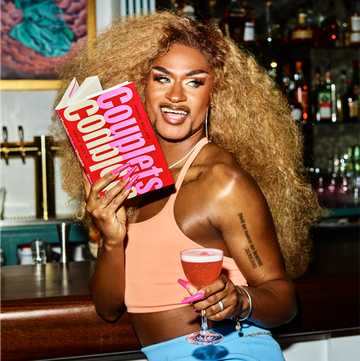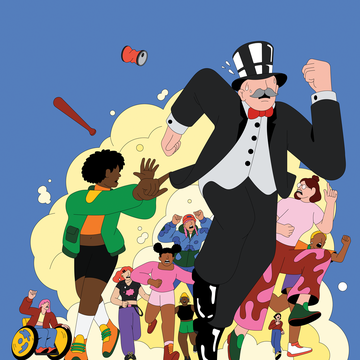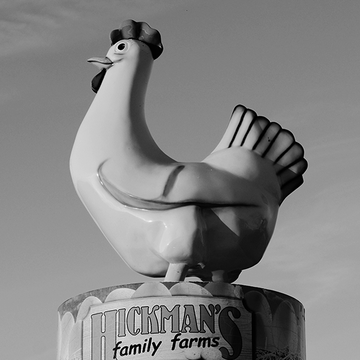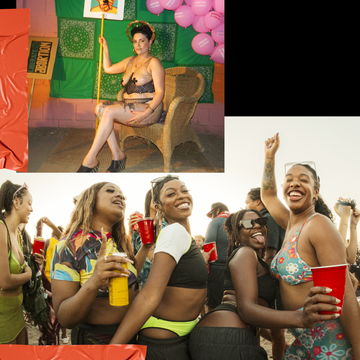Content warning: This story contains graphic descriptions of pregnancy loss, sexual violence, medical maltreatment, and emotional abuse.
In a TikTok video uploaded this March, an Ontario doula—let’s call her Ashley—stares intently at the camera. She has a warning for her fellow birth workers: A serial pregnancy faker is on the loose, pulling unsuspecting doulas into a string of ever-changing nightmarish scenarios. Without naming names, Ashley imparts her message: “This person was not and has not ever been pregnant.” The community had to protect itself.
The post quickly went viral as others stitched videos corroborating Ashley’s claims. A troubling pattern soon emerged, as did the identity of the accused: Kaitlyn Braun, a 24-year-old social worker from Brantford, Ontario, who had reportedly been DMing doulas on Instagram with myriad versions of a shattering scenario. In many cases, the details mirrored the lived experiences of the doulas themselves, and all shared a common plot: Seemingly scared and in crisis, Kaitlyn needed them to help her through a traumatic ordeal. Some doulas had already called the police, but Kaitlyn was still out there roping people in—over and over again.
By the time Kaitlyn Braun was arrested on March 13 and charged with multiple counts of fraud, criminal harassment, false pretenses, indecent acts, and sexual assault, she had allegedly enlisted dozens of doulas, feeding off their compassion and manipulating their professional code. Unlike ob-gyns or midwives, who are medical providers, doulas are devoted to providing comfort, advocacy, and education to clients throughout the birth process, both virtually and in person. It appeared that Kaitlyn had found a perfect target: people whose entire job is to believe women—to address their pain instead of dismissing it, to hear them, help them, and support their choices no matter what.
And support Kaitlyn they did, at significant emotional and financial cost to themselves (many opted to provide their services for free). Now, they share their stories in excruciating detail with the hope of raising awareness about...whatever the hell happened here.
What did happen? Kaitlyn’s alleged behavior tracks with what may be factitious disorder, a serious mental illness where people falsify medical or psychological symptoms, says Marc Feldman, MD, a clinical professor of psychiatry and adjunct professor of psychology at the University of Alabama and coauthor of Dying to Be Ill: True Stories of Medical Deception. “Unlike most mental illnesses, this one involves deliberateness and often tremendous planning,” he explains. Many patients are also deft improvisers, spinning up convincing details on the fly. The experience “is so gratifying that they can’t resist, even when they know it’s likely to explode in their faces.”
“Kaitlyn was hyperaware of the trauma she was causing,” says Nora, a 25-year-old doula who provided 10 days of phone support to Kaitlyn. For Samantha, 35, who supported Kaitlyn in person and virtually, there was even an admission. “Afterward, Kaitlyn told me she was going to see her therapist for help ‘getting my brain and my thoughts figured out,’” she says. Whether or not she did, Kaitlyn continued hiring new doulas anyway.
Because of a court-ordered publication ban, all the doulas’ names in this story have been changed. For the same reason, Kaitlyn’s attorney, Alison R. Macdonald, said Kaitlyn was unable to speak with Cosmopolitan, noting that Kaitlyn was still in custody. Kaitlyn has not entered a plea; her social work license has been temporarily suspended. When asked to comment on the fact that some doulas felt the police were dismissive of their concerns, a spokesperson for the Brantford Police Service said its investigation, marked by “immense dedication, compassion, and attention,” was “exhaustive.”
August 2022: An Ultrasound Surprise
Kaitlyn appears as someone who has learned of her pregnancy late—she’s nearly at term. A healthy baby girl named Eden, conceived via sexual assault, is due any minute. Samantha is a rookie doula who hears from Kaitlyn—her very first client—via Instagram DM. Kaitlyn arranges for Samantha to provide in-home and in-hospital labor support.
Samantha: Kaitlyn texted me on a Monday, her due date, saying she thought she might be going into labor. The contractions were 10, then 8 minutes apart, which is still kind of early for a doula to show up. But given her circumstances, I asked if she wanted me to come over. She said, “I really want to say yes because these are intense, but I feel bad because I’m sure you’re probably busy.” I was like, This poor girl. She’s so scared to ask for the support she needs. I immediately drove to her place.
She’s a heavier person with a belly, so going by her appearance, I didn’t have reason to doubt she was pregnant. She and her mother were living together in a small two-bedroom apartment. Kaitlyn had a car seat in the living room and a sleeper seat in her bedroom. She had baby clothes, a breast pump. It checked out that this was an under-supported young woman who was making do with what she could get.
A few hours after Samantha arrives, Kaitlyn reports that something is leaking from her body. Samantha suggests it’s her water breaking. Kaitlyn continues to labor at home for two days while Samantha stays at the apartment, taking few breaks. She keeps a wary eye on the clock, mindful of Kaitlyn’s rising infection risk.
By Wednesday night, Kaitlyn’s water had been broken for almost 48 hours. I had gotten the distinct impression that her mother did not want me there. She kept saying, “Do you think it’s false labor? Are you gonna go home?” And I was like, “Kaitlyn’s water broke; it can’t be false labor.” I was invested in getting Kaitlyn to the hospital, which she was resisting. Eventually, I called the hospital for guidance, and they told me to get her there immediately.
There’s a rule about not driving your clients, but it was the only option I felt we had—my understanding was that she couldn’t afford an Uber or taxi. Once we got in my car, she flipped out—screaming, sobbing, begging me to leave her and forget she exists. She was so emotional, I had to pull over.
I called my mentor, who has attended over 700 births. She asked to speak with Kaitlyn, and she convinced her to go to the hospital. Once we parked, though, Kaitlyn wouldn’t get out of the car. I had to threaten to get a staffer. This is exactly the kind of doula I don’t want to be. I never want to force you to do something you don’t feel safe doing. But Kaitlyn didn’t give me a choice.
When we got inside, she started questioning whether or not her water had even broken. I called my mentor again, and we started questioning it. Theoretically, it was possible that the fluid Kaitlyn said she saw was not from her water breaking but instead liquid that’d been trapped behind something called a mucus plug [which comes out before or during labor]. That would mean she wasn’t really at risk for infection. At that point, I was just like, I need to respect Kaitlyn’s choice. That is what we do as doulas.
Samantha drives Kaitlyn home and asks if they can meet at the hospital when it’s time. On Saturday, Kaitlyn texts that her contractions have returned—and once again, she has no safe way to get to the hospital. Samantha agrees to give her another ride…and repeats the exhausting process of getting Kaitlyn out of the car and into the building.
I breathed a sigh of relief when we got through the doors. An ob-gyn came into Kaitlyn’s room with an ultrasound machine. She started doing the scan, then quickly stopped. In my head, I was like, Why did you stop? You didn’t find the baby yet!
That’s when the ob-gyn wiped off the ultrasound goop, sat down, and said, “Kaitlyn, there is no pregnancy. The only thing in your uterus is an IUD.” The ob-gyn offered to call a social worker or psychiatrist, but Kaitlyn wanted to leave right away. At that point, I wasn’t sure if this was a hysterical pregnancy—meaning, whether Kaitlyn truly believed she was pregnant. If that was the case, then she basically did just lose a baby. The only thing she said the entire ride home was, “I’m so confused.”
I had another decision to make: I could be compassionate to somebody who possibly did not deserve my compassion, or I could be a real jerk to somebody who possibly needed my compassion. I made the choice I could live with. As I dropped her off, I said, “Do you want me to send you resources on loss?” She refused.
November 2022: Hospital Horrors
This time, Kaitlyn is a queer sexual assault survivor who has been shunned by her family. She’s supposedly in the hospital with intensifying contractions, about to experience a 32-week stillbirth. Rachel, 32, and Nora, 25, are doula friends who have agreed to team up on phone support. Kaitlyn’s story, challenging to verify remotely, becomes more disturbing with each passing day.
Rachel: I labored with her all day Saturday over the phone. Everything sounded super real. I could hear car sounds as she rode to the hospital. I could hear a heartbeat monitor once she was there. I was completely convinced.
Nora: It’s hard to describe just how real it all was. She was even throwing up over the phone. She told us she touched the baby’s head as it was coming out and was like, “It’s the most beautiful thing I’ve ever done.”
Rachel: Shit hit the fan about 45 minutes after the stillbirth, when Kaitlyn told me her placenta was not coming out. She told me she had to undergo a D&C, then a hysterectomy when the bleeding wouldn’t stop. Over the phone, I helped her process losing her uterus to her rapist’s dead baby just days before her 24th birthday. And that was the least traumatic event of the week that followed.
Kaitlyn tells Nora and Rachel that because her post-hysterectomy bleeding isn’t stopping, she’s being transferred to a second hospital, then a third, where she receives two devastating diagnoses: a clotting disorder and late-stage pelvic cancer.
Rachel: At this point, we made it clear we were no longer the professionals Kaitlyn needed. But you become so attached to this person you think is alone and dying. It’s really hard to walk away.
Nora: They gave her three options: a vaginectomy, radiation, or palliative care. Her kidneys were starting to fail. Things were not looking good.
Rachel: She told us she might live a year with treatment and three months without.
Nora: She decided she wanted to stop care. I was on the phone crying for the whole thing.
Rachel: Kaitlyn somehow knew I grew up with a dad whose partner owned a funeral home. I wrote a will with her. She also told us, in graphic detail, how a male doctor had touched her clitoris while his hand was inside her to stop the bleeding. She told us she didn’t feel safe with us calling the police because she was still at the hospital. That made sense to us as sexual assault survivors.
Nora: She kept saying to us, “I’m so sorry I roped you into this. I’m so sorry you’re experiencing this with me.”
Rachel: She was in an ambulance being transferred to yet another hospital when she started whispering, “He’s here; he’s in the ambulance.” She gave me his name—I looked him up, and he is a real working doctor at the hospital. And then she enacted this doctor raping her in the back of the ambulance before she suddenly hung up the phone.
Nora: Rachel starts panicking. She was like, “Do I call 911? What options do we have?” Kaitlyn then convinced us that she was going to report it herself.
Rachel: At the next hospital, Kaitlyn said the same doctor—who really does have privileges at both hospitals—assaulted her again. Only this time, a nurse caught him in the act and the police were now involved.
Nora: She said a nurse from Women’s College Hospital was coming to do a rape kit on her.
Rachel: She was very graphic in describing the assaults—how another doctor made her get on all fours during a procedure, how he touched her breasts, how she leaked milk when he did that, how he pulled a tube out of a drain on her body.
Nora: She was telling us the doctor was enjoying this—that he was ripping out stitches and things like that. The doctors had been arrested, she said.
Rachel: Somebody I was dating at the time, they actually called reporters because they were scared these doctors were going to get away with it. The reporters called back and said, “Are we missing something? Did this happen with a police unit we don’t know about?” They could find no record that any of this was happening. I had been with Kaitlyn since the previous Friday, and now it was Thursday, and that was really the first moment of being like, Okay, we need to touch something tangible in this situation.
Nora: This is when Kaitlyn said she started pushing out chunks of a tumor. She sent us a photo of a piece of a tumor on a blue Chux pad, which I reverse-image searched. It was the default Wikipedia photo for, like, rectal cancer.
Rachel: The 32-week stillborn baby photos Kaitlyn sent us were, like, halfway down the first page of Google.
Nora: And I was like, I can’t bear the thought of abandoning a client if there’s even a 1 percent potential that this is actually happening.
Rachel: Kaitlyn said she had been transferred to another hospital for palliative care. I called the hospital twice—when she arrived and again the next morning—to confirm whether Kaitlyn had been admitted. When they told me they had no patient listed under her name, I called the Brantford police and asked them to send a crisis team to Kaitlyn’s address.
Nora: The police called back a couple of hours later and said, “Yep, we found her in her living room at home. She’s fine.”
February 2023: “We Have a Problem”
Now, Kaitlyn is in an Airbnb. She’s 24 weeks pregnant, having learned a day earlier that the fetal heartbeat of a baby she’d wanted to name Brielle had stopped. Kaitlyn enlists Ashley, 35, who provides in-person and virtual doula services over four days.
Ashley: Kaitlyn told me she was a social work student. She lived on campus with roommates, so she had rented the Airbnb for privacy during labor. We did remote texting support Wednesday evening through most of Thursday. Mid-afternoon on Thursday, she started getting contractions.
She had a girlfriend there with her—someone she was dating at the time. I ended up going to the Airbnb just before 10:00 on Thursday night. When I walked in, Kaitlyn was watching Grey’s Anatomy—the episode where April and Jackson lose their baby right after birth. Kaitlyn said this was helping her. At the time, I could see how that might help someone. So, yeah, that was happening in the background.
We ended up going to the hospital. I took my own car and the girlfriend drove Kaitlyn. I waited outside at Kaitlyn’s request. (For nearly a month afterward, I thought the girlfriend was in on it, but I’ve spoken to her since and she definitely wasn’t.) About half an hour later, Kaitlyn came out and said, “I’m still at 4 centimeters.” Which meant this was probably going to take a while.
I said, “You should go home and try to rest. The best thing to do is sleep as much as you can.” Since I have a day job, I found a backup doula who could be with Kaitlyn when I couldn’t. That doula and I kept in constant communication throughout the weekend. The red flags started to pick up on Sunday, when Kaitlyn said her water broke. The doula was like, “I think she peed in front of me. It wasn’t her water breaking. It looked like pee.”
At one point, Kaitlyn had supposedly gone out to buy some items she’d need postpartum. The doula told me she checked inside the bag and there was nothing in it except a change of clothes. That set off an alarm bell in her head. She remembered seeing a post in a local doula group on Facebook about a client who had done similar things. She found the post, and it was about Kaitlyn. The doula sent me a screenshot and wrote, “We have a problem.”
Me, I’m very good at setting boundaries. “I think you should just get your shit and leave,” I told her. And that’s kind of what she did. We never contacted Kaitlyn again.
The next day, we heard that Kaitlyn had reached out to another doula in the area. We were adding people to the Facebook group daily. Regardless of people calling the police and doing statements, nothing was changing. I said, “I’m gonna make a TikTok video.” I wasn’t looking to name Kaitlyn; I didn’t post pictures of her. I really just wanted to protect other doulas. I was already feeling so much guilt about bringing somebody else into this—yet another doula who was traumatized.
I posted some snippets to Instagram too. Within an hour, a doula messaged me saying, “I think I’m with this person right now. Can you call me?” I did and sent her a couple of photos of Kaitlyn. She saw the images and started crying. She and Kaitlyn were at the mall, walking during Kaitlyn’s contractions. The doula had excused herself to her car to speak with me. She was so upset. This was the second time I had to say to somebody, “You don’t owe her anything. You need to just drive away.”
I put us on a three-way call with the police. I told them, “This is actively happening right this second. You guys need to do something because it’s not stopping. It’s just getting worse.”
March 2023: Nail in the Coffin
Kaitlyn is in the hospital, flanked by friends, where she’s been for several days and where she’ll soon have to deliver a stillborn baby conceived through rape. She reaches out via Instagram to Rosa, 35, a pregnancy and infant-loss doula. Rosa begins working remotely with Kaitlyn days before Kaitlyn is arrested.
Rosa: I think I was one of Kaitlyn’s last people. This is very fresh for me. I’m still in the process of grasping what happened.
She reached out early on a Saturday, asking if I had ever done virtual loss support. I have, so this request didn’t seem unusual. She shared her story and said, “I looked through your social media, and you just resonate with me.”
She had been in the hospital since Wednesday. Doctors were waiting to either release her or possibly induce her there. We were messaging back and forth on Instagram a lot. She seemed very appreciative but needed a lot of reassurance. Like, “I’m sorry I’m bothering you. I don’t want to be a burden.”
I did have subconscious alarm bells. When she first reached out to me, I went through her social media too. I was trying to substantiate this feeling I had, but I couldn’t find any holes.
Kaitlyn brought a friend into it—a friend who was supposedly there with her. The friend would take Kaitlyn’s phone, and they’d pass it back and forth. I was speaking and texting with them both. At one point, her friend said, “Kaitlyn and I sound similar; we’ve been told that our entire life.” She talked about how she and Kaitlyn had been through so much together, how Kaitlyn is so strong, the strongest woman she’s ever seen. Just really talked Kaitlyn up like a best friend would in this kind of scenario.
Kaitlyn was progressing into labor. Her friends were in and out of the room for support. But she ended up pushing too early and suffered a cervical tear. She also had a placental abruption [when the placenta prematurely separates from the uterus]. Doctors worked on her for two hours, and she ended up with a hysterectomy, and that still wasn’t enough. She had issues with blood clotting....Essentially, she was in multisystem organ failure. She was put on life support. The stillborn baby was passed off to the friends, which doesn’t happen unless...
So I was thinking, Oh god, she’s done. My client is dead. I was supporting her best friend through all this—having to say goodbye to Kaitlyn, Kaitlyn’s family making the decision to keep her on life support so her sister from England can come say goodbye, what they’re going to do with the baby.
I was trying to cope too. This was hitting every one of my triggers: My sister was on life support when I was 4, and she passed away. I’ve had multiple losses. I’m an assault survivor. I had a hysterectomy last year. This surely could’ve been a fluke, but I don’t think it was.
At this point, I was at capacity. But you can’t be like, Oh, this is looking bad—I’m gonna leave now. Kaitlyn had mentioned that she was a person of faith, and so am I. So I was like, She’s getting to meet her daughter in heaven. She’s not having to process all this trauma. Just really trying to find any kind of silver lining that I could.
That same evening, Kaitlyn’s friend told me, “Oh, by the way, I’m also pregnant.” And I was like, I cannot. I cannot. And then she said she was having contractions. I told her she needed to find a different support person. I could not do another birth with someone right then.
But the next day, Sunday morning, the friend told me she was in preterm labor. And then she said, “This baby is from an assault by the same person.” Even if this was plausible, my brain couldn’t make it make sense. I had so many questions, but I was tapped out. So again, I pushed her to find different support.
The friend started saying that she couldn’t feel her baby anymore, that doctors were rushing her off for an ultrasound because they couldn’t find the heartbeat. And I had to be like, I’m done. The last thing she said to me was, “Do you still want updates about Kaitlyn?”
That night, I spoke to a coworker I subcontract to sometimes. This situation had delayed my paying her, so I had to let her know what was going on. She sent me a screenshot from a doula Facebook group about a client named Kaitlyn Braun who had been hiring doulas for fake stillbirths. I was like, “You’ve gotta be kidding me.” Kaitlyn had contacted me on Saturday. By Monday, I was in the group chat, hearing everyone’s stories.
I hope Kaitlyn gets the help she so very needs, but I have no sympathy left for her. Having your compassion and your own traumas used against you is grotesque. It’s vile. Doulas may be gentle and soft and loving, but you cross our lines? We will stand strong.
If you are in need of mental health support concerning any aspect of pregnancy, including pregnancy loss, consider calling or texting the confidential, 24/7 National Maternal Mental Health Hotline at 833-852-6262.
Sarah Treleaven is a writer and producer and the host of USG Audio’s The Followers: Madness of Two podcast. She lives in Nova Scotia, Canada.
